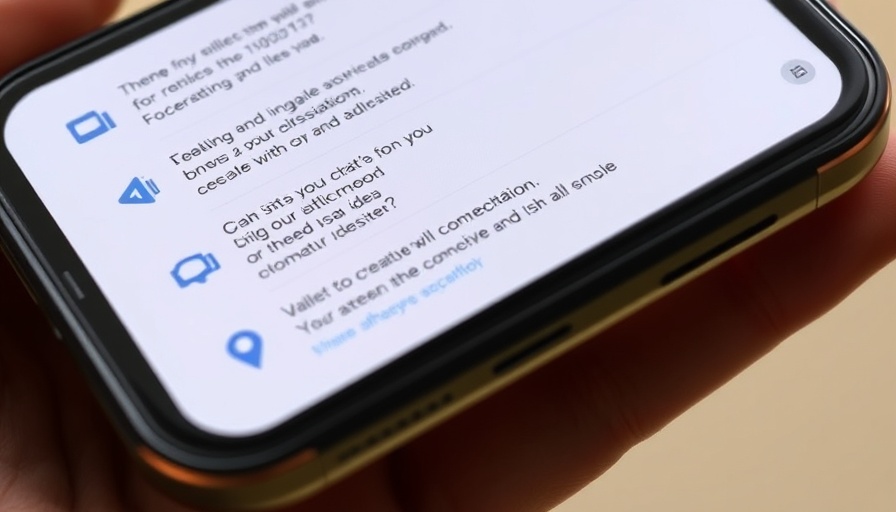
Spotting AI Writing: The New Academic Challenge
In the rapidly evolving landscape of education, the emergence of AI writing tools poses a significant challenge for educators and students alike. As AI technology continues to improve, it becomes easier for learners to complete assignments within seconds using platforms like ChatGPT, Grammarly, and EssayGenius. While these advancements offer convenience, they also raise ethical concerns regarding originality and academic integrity.
Identifying AI's Telltale Signs
Many educators are now facing the daunting task of differentiating between human-written and AI-generated content. Common indicators of AI-authored writing often include:
- Repetitive use of key phrases from the assignment prompt.
- Inclusion of inaccurate information due to AI's tendency to 'hallucinate' facts.
- Sentences that sound unnatural or overly formal.
- Generic explanations lacking depth or insight.
- A tonal mismatch compared to the student’s typical writing style.
For instance, if a student submits an essay with clear redundancy of assignment phrasing, their work may read more like a piece optimized for search engines rather than a demonstration of comprehension. These characteristics, which can easily disguise poor academic practice as legitimate effort, call for a more critical assessment of student submissions.
The Implications for Learning and Responsibility
While AI writing tools can enhance productivity, they also inhibit essential skills such as critical thinking, creativity, and articulation. When students lean too heavily on such technologies, they may miss out on the nuances of synthesizing knowledge and expressing personal insights. This can undermine not only their academic progress but also their ability to succeed in future professional environments.
A Collaborative Approach to AI Tools
Instead of entirely dismissing these technologies, educators can use AI writing tools as a dual-purpose resource. By demonstrating the potential advantages of these platforms — for the enhancement of writing instead of replacement — teachers can guide students on responsible usage. Educators should develop assignments that encourage innovative use of AI, pairing it with lessons that underscore the importance of originality and creativity.
Actionable Tips for Students
For students who wish to maintain academic integrity while still taking advantage of AI tools, here are some practical strategies:
- Draft your thoughts first, then use AI to refine and enhance your writing.
- Always verify any facts provided by AI sources against reliable information.
- Stay true to your unique voice; infuse personal insights that AI cannot replicate.
By utilizing these tips, students can find a balance between technological assistance and thorough comprehension, thereby crafting genuinely original pieces while navigating their academic journey.
Explore More About AI Writing Tools
For those interested in mastering how to seamlessly integrate AI into their writing practices without falling foul of academic guidelines, check out Prompt2Human for expert insights and strategies.
 Add Row
Add Row  Add
Add 




Write A Comment